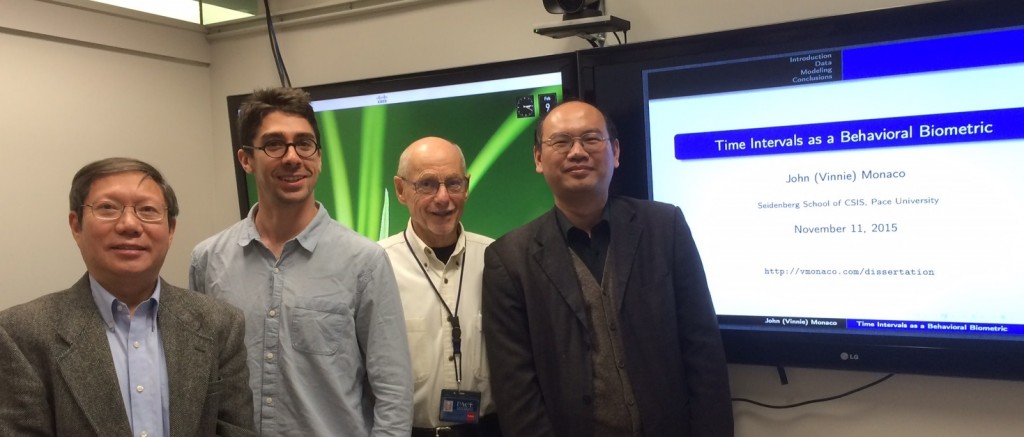 John “Vinnie” Monaco recently made an achievement that is a milestone in Seidenberg School history: he successfully defended his PhD dissertation and became the school’s first ever Doctor of Philosophy in Computer Science! We are absolutely delighted with Vinnie’s success and can’t wait to see where his new qualification takes him.
John “Vinnie” Monaco recently made an achievement that is a milestone in Seidenberg School history: he successfully defended his PhD dissertation and became the school’s first ever Doctor of Philosophy in Computer Science! We are absolutely delighted with Vinnie’s success and can’t wait to see where his new qualification takes him.
Vinnie’s dissertation, “Time Intervals as a Behavioral Biometric,” isn’t just significant for the Seidenberg School, but it is also important within the field of behavioral biometrics. We asked Vinnie to provide some insight into the research he did:
“My work attempts to identify people based on the way they behave over time,” says Vinnie. “The model I proposed utilizes individual differences in temporal behavior across a range of scales, such as typing, sending emails, initiating financial transactions, or visiting the White House. The significance of this is that only event timestamps are required. This breaks down the privacy barrier that was thought to exist using tools that provide spatial anonymity, such as TOR, and calls for new identity-masking techniques. To be truly anonymous in the 21st century, a person has to not only hide their IP address or location; they have to also mask their behavior in some way.”
Pretty amazing stuff!
Vinnie’s defense was overseen by his dissertation committee (pictured, from left to right, Dr. Lixin Tao, Dr. Vinnie Monaco, Dr. Charles Tappert, and Dr. Meikang Qui).
On his impact at the Seidenberg School, Vinnie said: “I’m proud to have been the first PhD graduate from Seidenberg. I think that the school is starting to attract a greater number of quality researchers, both students and faculty, and I’m confident that the Seidenberg School will continue to be recognized as a leading institution in behavioral cybersecurity research.”
Congratulations to Dr. Monaco on his enormous achievement!



